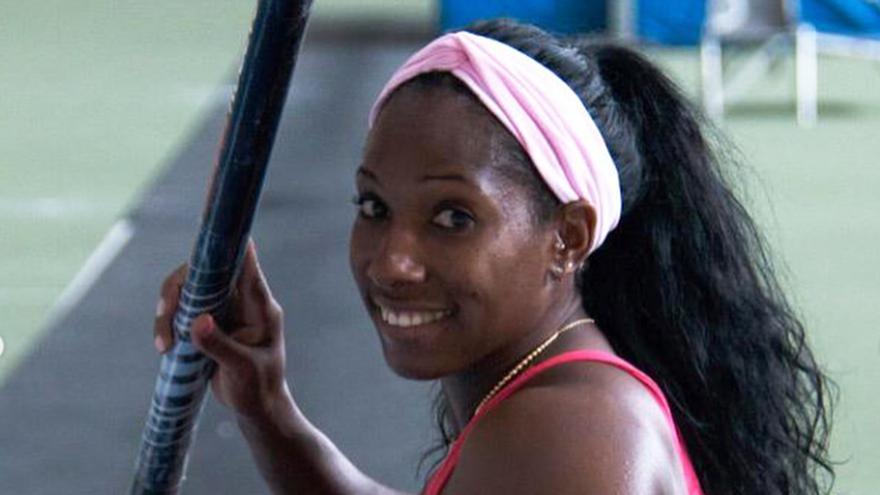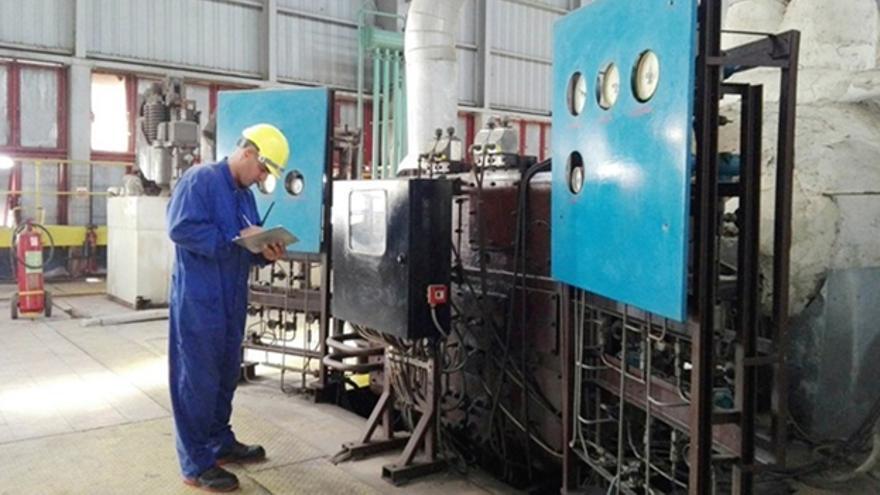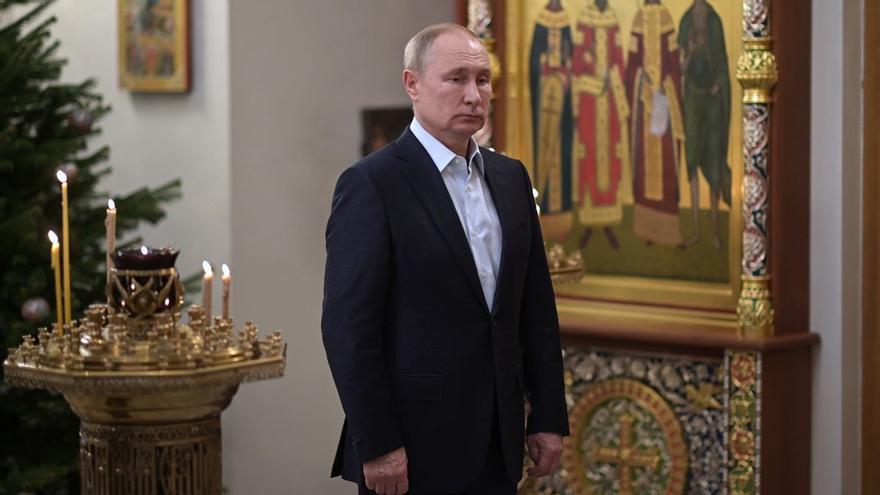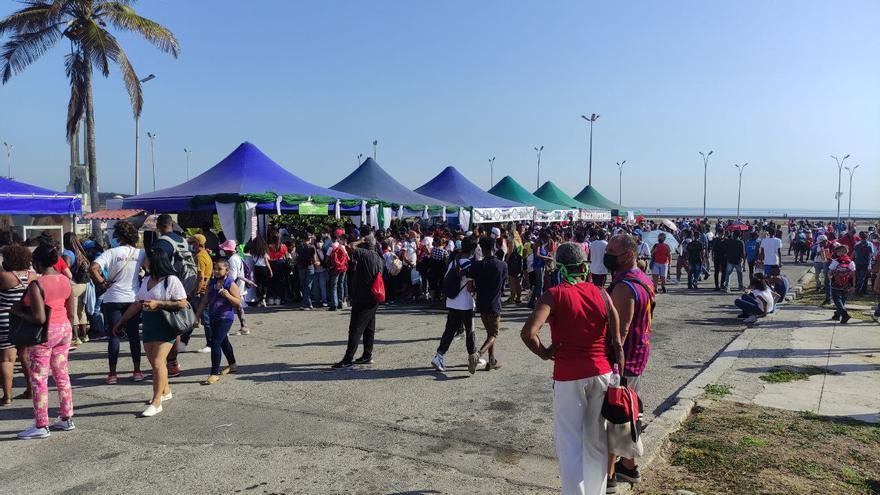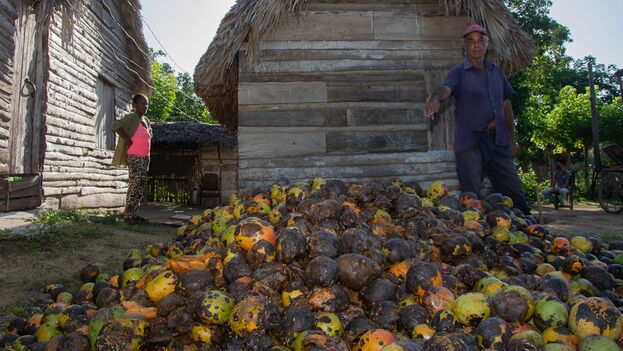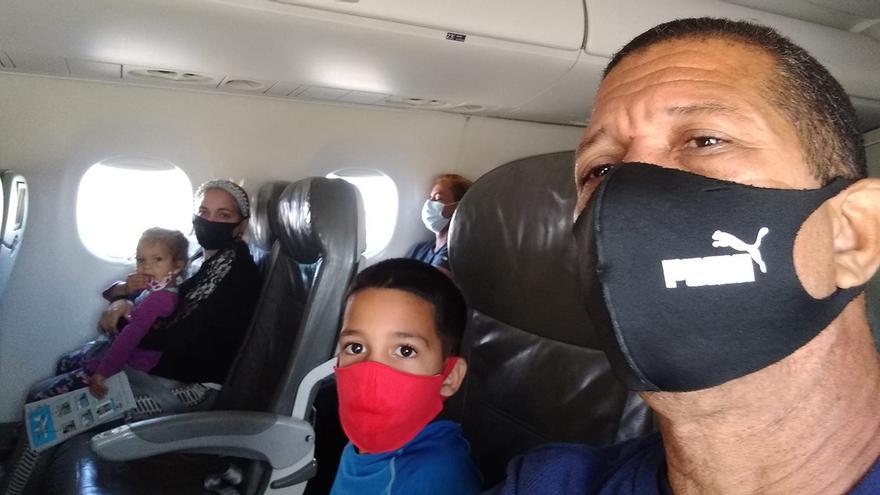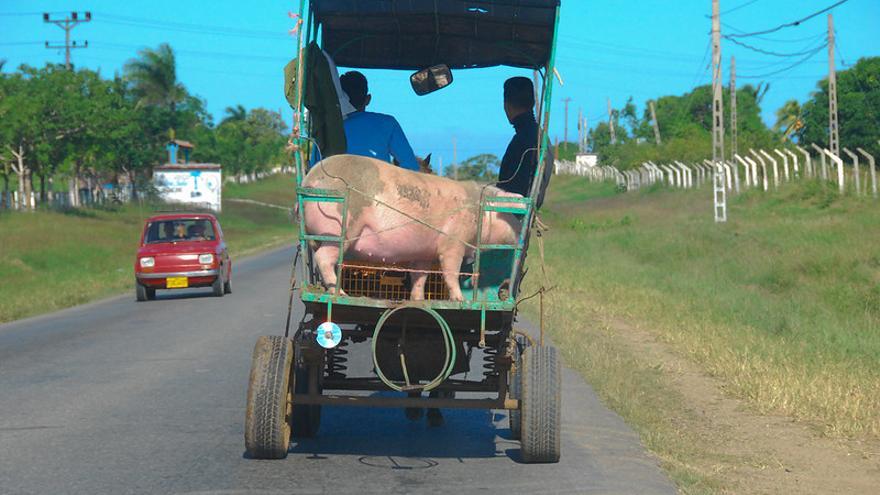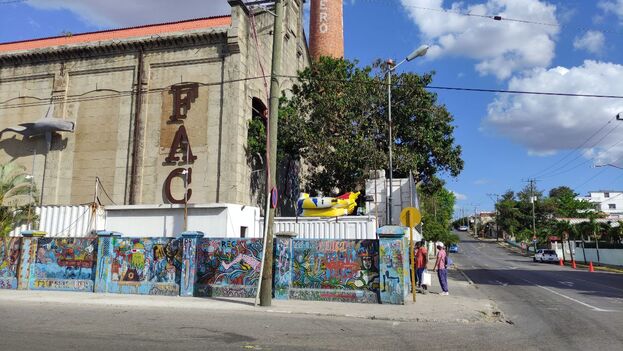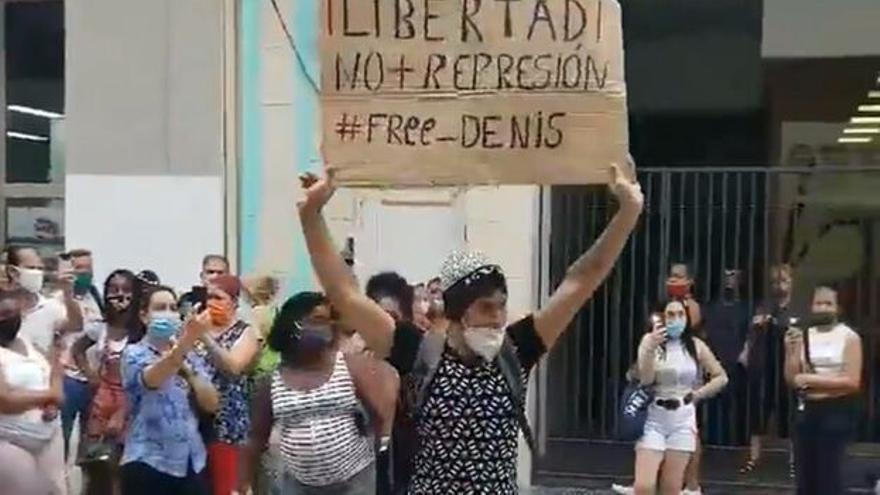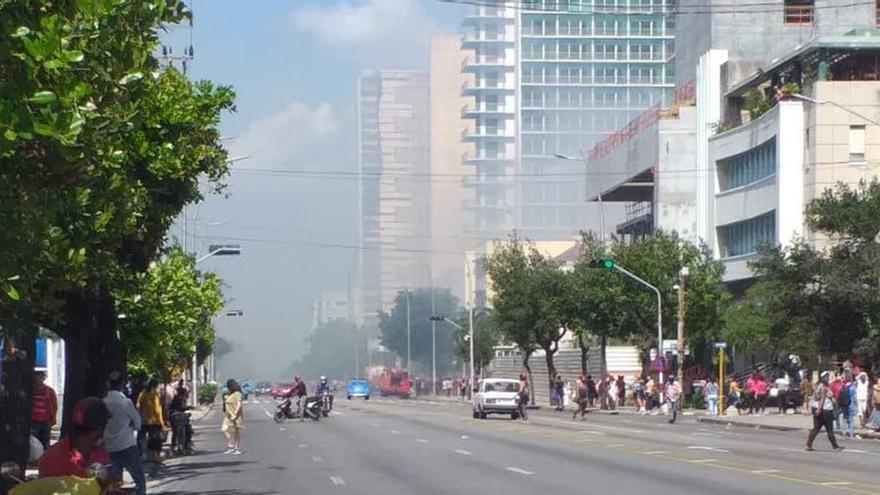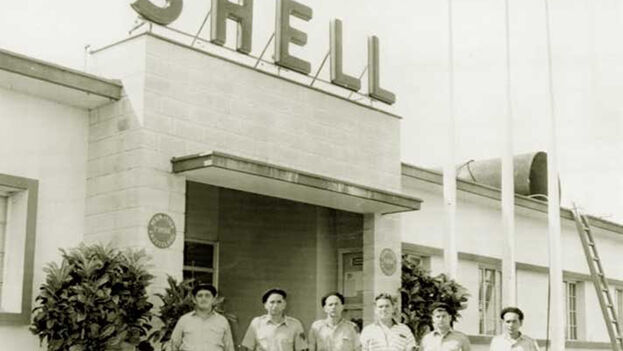We are at the end of March, and we are still waiting for the estimate of quarterly and annual GDP growth in 2021. Whatever happened in the fourth quarter, still unknown, will be a good indicator of whether the Council of Ministers is telling the truth, or simply, lies.
The economic plan, that impossible contraption to which the Cuban communists cling as if it were the philosopher’s stone, presents figures that are alien to the current reality of the world economy, and if they are not rectified, they will once again make a fool of themselves, with serious breaches of forecasts. Nothing will happen.
Later it will be decided that the responsibility falls on the American ‘blockade’ and everyone is happy. But Cubans will once again suffer the scarcity, misery and unequal poverty that is the sign of the times on the island.
Cuban president Díaz-Canel said that “in the midst of the complex situation that Cuba is experiencing, we cannot give up compliance with the economic plan, we must continue to recover the levels of production, exports, income to the country, and change strategies in certain activities to fulfill and grow with respect to the previous year.” continue reading
Yes, this is all very well; Díaz-Canel says and repeats that “there is, there is and there is”, but who is in charge of achieving that “there is”? Because, it is all very well to direct the economy with harangues, but that is not how you feed the people, you have to be practical.
Prime Minister Marrero also praised the plan and pointed out that “our job is the constant, realistic and objective updating of the Economic-Social Strategy, taking into account the processes that are being experienced” and then continuing with the perfection of the state Enterprise.
But let’s go to the data offered in the Granma report. The Council of Ministers has recognized that February “was once again a tense month for the Cuban economy, although certain indicators showed a more favorable situation compared to January, and also to the same period in 2021.” Tense is one way of naming the serious crisis that continues to affect the Cuban economy and that it is hopeless to hide.
Among the improvement indicators, “the plan for exports of agricultural products with a better performance in the markets” was cited. But don’t even think about food. The exports are rum, lobster, shrimp, honey, products that we Cubans are totally ignorant of. That maxim of exporting without satisfying the population’s demand is an insult to the intelligence of Cubans, but the Council of Ministers considers these exports of agricultural products to be an improvement.
The other data in which they see better behavior is tourism, but it is recognized that “it has not yet recovered from the resounding fall.” If tourism in January and February 2022 is compared with that of the last year before the pandemic, it does not even reach 20% of the figures then. Other than discreet advances, tourism does not raise its head. And it is insisted that this scenario is typical of Cuba, while the Dominican Republic has registered an exceptional first quarter in the tourist business.
The Economic and Social Strategy, which in its day was Díaz Canel’s protective shield against the serious consequences of the pandemic, was also pursued for its proposals to “oxygenate the economy faster.” But there is a feeling that, two years later, due to some blockage, that oxygen does not reach the lungs, and the economy is failing, suffocating with so many measures that are useless, acting only as patches in the face of very serious problems that require structural decisions.
And the communists recognize and applaud that they have to “increase production; improve the supply of food and medicines, and public transportation, anti-inflationary measures and stability in the electrical system,” but these measures remain in the statement, and do not come down to reality, and meanwhile, the Cuban economy languishes.
In the Council of Ministers, there was talk of the existence of different recognized economic actors, but for them, the proposal is not in line with more freedom and capacity for autonomy, but rather that “the State continues to fulfill its regulatory role, fully entering in the economic-financial, planning, control and management methods of private companies.” They say they want to reduce bureaucratic obstacles, but they do not renounce an ideological and outdated interventionism that seeks to put private companies at the service of the regime. A bad business.
There was also talk of the purpose “of expanding, in a more efficient and effective way, foreign investment in the country,” but at the same time they are messing around with an expropriation law that establishes differences between foreign and national capital that, one can be sure, will generate not a little uneasiness among international investors who are going to promote projects on the island.
Similarly, measures to deal with shortages were cited, “applying measures to internal trade that generate tranquility in the population, based on forms of marketing that allow, in a controlled manner, that goods arrive more equitably.” The answer is easy. Stop marketing agricultural products through the State company Acopio, give producers freedom to decide what, how much and at what price to sell, and free the markets, and you will see how the supply to the national market in pesos increases.
Of the socialist state company, whose “disadvantages with respect to other economic actors” were highlighted, the Council of Ministers insisted on its “fundamental role in the future of the nation” but once again, its actions go in the exact opposite direction in which they should go. It turns out that now they think that state companies can improve their performance thanks to “a political process of characterization of business management, which is telling us that we must make the policy of cadres in that sector more dynamic.” Let’s see if they manage that.
They also defended popular participation in all the processes of the nation, and insisted that “business decisions must also be brought to the workers. In our companies there has to be a different dynamic of participation.” What was missing.
This is to be developed with the “potentialities of the interface companies that have been created with the knowledge sector” the new science and innovation toy that has been given a certain role in the technological science parks. Pure and simple consulting business.
At this point, Economy and Planning Minister Alejandro Gil Fernández. took it upon himself to explain, in somewhat more detail, the state of the Cuban economy in February.
In his opinion, the most significant thing was that “the export of goods grew compared to January and also to the same period in 2021,” but he did not provide the data, so it is impossible to confirm his assertion. Of course, he said that the best exportable items were rum, lobster, sea shrimp and other fishery products; in addition to honey and nickel. The same as always. In addition, it is noted that between 2017 and 2020 these products barely represented 20% of Cuba’s total exports, so their impact in terms of income is reduced.
The deviations came when talking about food deliveries from Agriculture to the balance of the country. In February this affected the national production of rice, beef and pork. Basic food products for the population that are scarce. However, he pointed out that milk presented a favorable situation. Here if he offered the data, “little more than 31 million liters collected, which has affected, fundamentally, the increase in the price to producers.” Between 2017 and 2020, the average annual milk production in Cuba reached 538.8 thousand tons. The figure of 31 million liters cited by the minister is very low, in relative and absolute terms, barely 5%.
Minister Gil pointed out that in some agricultural products growth is taking place. And for this, he cited the comparison with the production of the first two months of 2021, to point out that today there are 77,378 more tons, still far from satisfying the demand. It is not easy to determine the satisfaction of the needs of the population citing tons of food, as if it were food for livestock. That lack of respect that leads to using indexes that insult the intelligence. The minister said, in relation to this issue, that he sees “the presence of products in the markets and greater stability in supply, which is essential to control inflation.” If he says so.
With regard to tourism, the minister pointed out that it can “achieve a better recovery, and of course, it pulls other sectors,” a controversial issue that is not clear about this “draft” as it occurs. He highlighted that 99,223 tourists arrived in February, representing 66.3% of what was planned, a figure lower than the plan, which he justified by the rebound of Omicron in the world.
He insisted that the figure foreseen in the plan for the end of the year will be 2.5 million international visitors this year. It’s difficult. The 99 thousand tourists in February barely represent 20% of those who arrived in the same month of 2019 before the pandemic. There is a long way to go, because tourism is still moving at levels 80% below pre-pandemic figures. One has to lower expectations.
Nor did retail trade adjust to the plan, reaching only 92.2%, although the minister believes that “there are possibilities to improve this indicator, based on a set of measures that are being worked on, with the aim of increasing offers to the population.” He didn’t mention what the measures are. In addition, in Cuba, the indicator of mercantile circulation is so affected by the amount of money in the hands of the public, that it is not a good measure of the economic situation, but of the lack of control of prices.
He referred to the data of MSMEs (micro, small and medium size businesses) and CNAs (non-agricultural cooperatives) created in the period being evaluated. In total, 470 MSMEs and 7 non-agricultural cooperatives, with which 6,758 new jobs were generated from these undertakings. Figures that continue to be low and that prevent the process from being described as a success.
He also spoke of the 439 companies with losses, more or less the same ones that have been in this situation since last year, and although he justified the results by saying that before there were around 500, the truth is that he stated that the number of countries without losses has to reach zero. In that sense, he explained that they are in “a timely review of each of these entities to identify the causes and, above all, the solutions.”
Undertaking the rescue operation of these companies goes through privatization or sale decisions that do not seem to be in the plans of the regime, but that would serve to overcome the serious situation in which they find themselves. The rest is nonsense.
He then referred to inflation and what he called “irrational prices, both in the state and non-state sectors,” which are going to be confronted with effective measures, although he did not state what measures are involved. Of course, he turned to delivering the outdated speech that pleases the communist audience so much, in the sense that “abuse cannot be allowed, one thing is the increase in costs, associated with the increase in the price of imports, and it is another to take advantage of the scarcity and to try to win two, three and even four times more.”
Hopefully the minister was able to understand what is one thing, and what is another. He would have an easier time in an economy where prices were not set by bureaucrats, but by supply and demand. He did not want to take advantage of the February data, which has placed the year-on-year inflation rate at 23.03% compared to 77.3% in December 2021. A good result, which, however, the minister did not want to assert. He will have his reasons for that, most likely a price rebound in the coming months. We’ll see.
In his opinion, to fight against inflation “you have to work at the base, where the economic event is generated, where products are being sold at exorbitant prices.” In this he agreed with this blog, when he said that the solution “is not only to issue a Resolution of the Ministry of Finance and Prices that establishes certain parameters, we must combat this, arguing with the cost sheets in hand.” Goodness. We are gradually approaching rationality, but without reaching it. Finally, Marrero took the floor to ask, surprisingly, for “more solutions of our own to the problems that the nation faces today, in the midst of a complex situation marked by a tightened blockade, the crisis generated by the pandemic, to which is added the conflict in Ukraine, which logically has an impact on our economy.” But is it understood that he must be the one to find those solutions.
Well no. He took advantage of his turn to make a call to businessmen, to groups at all levels, to look for variants that allow each of the problems to be solved, because we cannot sit back and wait, for example, for foreign currency to be allocated to us, today it’s not possible. So, in this governance model that Marrero has invented, what should the government do? Lock up dissidents?
Marrero said that we have to continue developing ourselves. Now more than ever, “each of us from our responsibility, we have to dress up to look for solutions, to find alternatives that allow us to continue advancing in the midst of so many complex problems.” And doesn’t Marrero believe that you can also advance and much better so with fatigues and rolling up your sleeves to work hard?
The Council of Ministers addressed the same issues as always, which according to Granma “has a great impact for the country,” such as the status of accounts receivable and payable after the deadline; the implementation of the comprehensive strategy for the export of goods and services; the economic effects caused by irregularities in foreign trade activities; and compliance with the Port-Transport-Internal Economy Operation.
Other issues of “great impact” were compliance with the plans to confront urban illegalities, prevention and confrontation with fuel theft, postgraduate academic training, master’s degrees, specialties and doctoral training, as well as the proposal to promote a development resilient and low in greenhouse gas emissions.
Surprisingly, in the Council of Ministers, two leaders gave an account of their management, in compliance with the provisions of the Constitution of the Republic, the governor of Guantánamo, and the minister of energy and mines. Terminations in sight? Movements on the bench?
With regards to the minister of energy and mines, Marrero considered the need to move to another stage in the development of renewable energy sources, and pointed out that “we need to speed up the transition to cleaner energies,” relying on the experience of companies in the Mariel Special Development Zone. Afternoon. Their time is running out.
____________
COLLABORATE WITH OUR WORK: The 14ymedio team is committed to practicing serious journalism that reflects Cuba’s reality in all its depth. Thank you for joining us on this long journey. We invite you to continue supporting us by becoming a member of 14ymedio now. Together we can continue transforming journalism in Cuba.
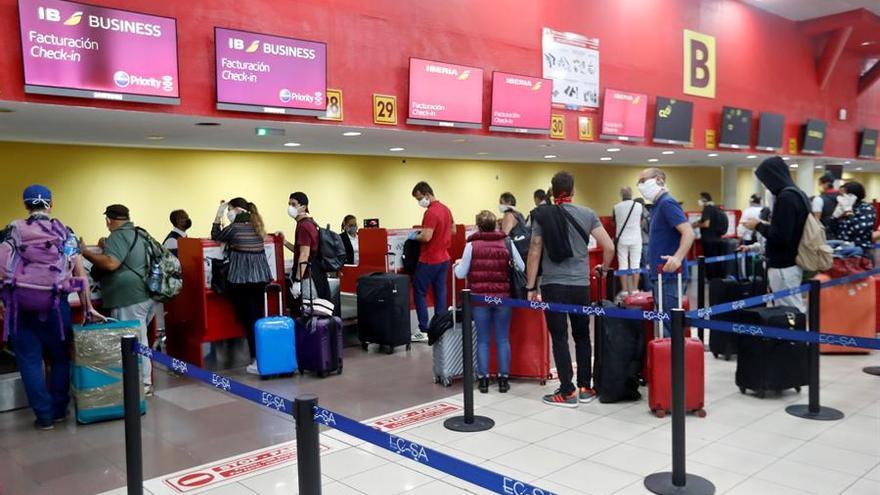
![]() 14ymedio, Havana, 4 April 2022 — As of this Wednesday, April 6, international travelers arriving in Cuba will not be required to present a PCR, antigen test or even proof of vaccination to enter the Island, measures currently in force to counteract the covid-19 epidemic.
14ymedio, Havana, 4 April 2022 — As of this Wednesday, April 6, international travelers arriving in Cuba will not be required to present a PCR, antigen test or even proof of vaccination to enter the Island, measures currently in force to counteract the covid-19 epidemic.


